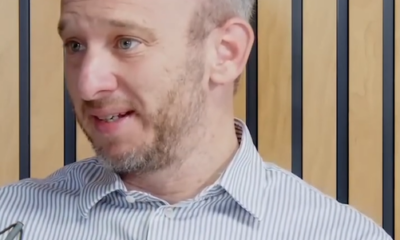
OpEds

Coalition nation: how history didn’t repeat itself
South Africa’s 29 May election produced a political earthquake. The great and assumed hegemon of our polity, the African National Congress (ANC) lost power by crashing down to just on 40% of the vote. Unlike the ANC, the Democratic Alliance (DA) didn’t shed 17% of its support, and went up marginally to 21.8%, finishing second, well ahead of Jacob Zuma’s uMkhonto weSizwe Party (MK) and Julius Malema’s Economic Freedom Fighters (EFF).
It was this extraordinary result which led me, 15 years after departing party leadership and Parliament, to join John Steenhuisen’s team in the negotiations that led to the agreement last Friday, 14 June, for a government of national unity (GNU).
While I found myself back in the arena alongside another former DA leader, Helen Zille, the terms of trade and political weather had changed considerably since my last immersion in the murky waters of politics.
We were given less than two weeks from the declaration of the election results and election of the president to form the next government and provide the terms of participation.
The first order of business from the DA side was to create an outline agreement setting the modus operandi for the next government and its composition. The most difficult policy decisions of the next government, from international affairs and alignments to economic policy, would await the new administration.
However, the GNU agreement would define how decisions would be made and deadlocks would be broken.
The key questions for the DA in the negotiations were: could we enter sensible power sharing arrangements? Would our participation in government for the first time ever prevent an even worse outcome of an ANC-MK-EFF tie up? And, could we square the circle of participating in power with a party – ANC – which on many issues was diametrically opposed to the core tenets of DA policy?
Power or access to it seemed quite remote until recently. Just more than one week ago, on Tuesday, 11 June, as we sat freezing in a hotel boardroom in Sandton, I asked fellow DA negotiator, Western Cape Premier Alan Winde, how he rated our prospects of striking a deal. He answered, entirely correctly at the time, ‘’About 30%.” How that percentage grew to 100% just three days later has been interrogated by several commentators.
However, the back story is important to illustrate the contingent nature of events that propelled the country into the brave new world of coalition government. It also averted the worst possible outcome. But crucially, it offers signposts for the uncertain road ahead.
The first order of business for both parties was to decide how tightly the parties would bind themselves to any agreement and each other.
For the DA, there was robust internal debate about what would serve both country and party better. On the one hand, a loose arrangement with the largest minority party – the ANC – whereby the DA would lend its support to electing the president and keeping him in office (confidence). It would also support the minority government’s budget (supply) in exchange for an agreed bare-bones policy agenda.
The attraction of this confidence and supply model was that the DA could avert the “doomsday coalition” of ANC-MK-EFF. And, from the outside, prop up a Cyril Ramaphosa minority government. With this arrangement, the DA would be able to simultaneously support and oppose the same government.
It was United States President Richard Nixon who offered the best response to this arrangement – the political equivalent of being half pregnant.
Nixon, as I reminded our group, had to decide what sort of arms airlift to send to imperilled Israel during the 1973 Yom Kippur War. There was serious disagreement among his cabinet members on how large or small the weapons supply should be. Nixon, according to his secretary of state, Henry Kissinger, settled the matter decisively: “We’re going to be blamed as much for three planes as for 300. Send anything that flies.”
The politics of half-measures is often an illusion, and voters will be perplexed that their party has lent its support to a government but has no effective way, or power, to influence its outcomes. The DA thus settled on pursuing a full-blown coalition, sharing executive office, as its preferred model for engagement.
If both local voters and foreign investors recoiled at the prospects of lingering uncertainty over the next five years, how stable would governance here become if government limped along vote-by-vote in a Parliament where there was no governing majority?
Our negotiations group noted with interest the performative posturing and bellicose rhetoric of wannabe ANC coalition partners. MK demanded the head of President Cyril Ramaphosa for the price of its support. The EFF, however, demanded – among other flights of fantasy – the ministry of finance for itself together with unstitching the entire Constitution and upending the economy, already flat on its back.
The first substantive declaration from the DA was not a demand for posts and unattainable concessions, but an agenda for co-operative governance.
The DA’s framework contained the party bottom lines:
- The promotion and protection of the Constitution, including the Bill of Rights “in its entirety”, which includes the property clause;
- The independence of the Reserve Bank;
- An independent and corruption free public service;
- A sustainable fiscal framework, including reducing the budget deficit to 3.5% or below within three years;
- Devolution of power; and
- The urgent implementation of the president’s reform agenda, as per Operation Vulindlela.
This approach met key DA objectives and provided a point of common agreement to which, theoretically at least, the ANC was also committed.
There were only two other red lines. First, the party wouldn’t be signatory to any provincial arrangements in the absence of a national deal. This meant that, in the battleground province of KwaZulu-Natal where no non-MK provincial government could be formed without the DA, the party wouldn’t lend its support there without a national agreement as well.
Although we finished only fourth in the KwaZulu-Natal election, we had asymmetrical power there precisely in the absence of any clear winner, and we used that fact and those numbers to press for an all-in deal.
Then came the second requirement. As our meetings with the ANC indicated it was moving toward a GNU model, we indicated there could be no participation in this with parties that would break the basis of common agreement we had outlined, namely the MK and EFF. But by then, through word and deed, those two parties had begun to exclude themselves.
The 1994 government of national unity – ANC, National Party (NP), Inkatha Freedom Party – was the consequence of the 1993 interim Constitution, and came into operation immediately after the election results were posted. But the biggest difference between then and now was that in that set-up, the ANC had 62% of the vote, not 40% as it obtained last month.
Thus, when the NP leader FW de Klerk exited the GNU in 1996, it made no difference to the continuance of government. One reason for De Klerk’s deep disaffection with those arrangements was that the ANC never agreed to a coalition agreement governing how and which modalities would operationalise that GNU.
Hence, our requirements were obtained after much last-minute wrangling. They were for both a precise definition of deadlock breaking mechanisms in the event of disputes – ultimately to be settled by the two largest parties to the agreement – and broad representivity in the composition of the new government.
The last GNU ended prematurely and in acrimony. If this new 2024 GNU fails or falls, then this government will end. If that happens, only either the MK or EFF entrance into power or fresh elections will resolve the resulting power vacuum. It’s as simple and as terrifying as that.
I recently had a chat with a legal eminence about the “Statement of Intent of the 2024 Government of National Unity” – the document we agreed with the ANC – which now guides the seventh administration.
He confirmed that it wasn’t a legal contract which you could take to court to obtain enforcement. It was, in fact, a political settlement and how and whether it worked in practice depended on politicians, not lawyers.
Indeed. The success or failure of the brave new world which South Africa has now entered, with its promises and pitfalls, doesn’t rest on a document, however difficult it was to obtain it.
Instead, it depends on wise leadership, a spirit of co-operation and compromise, and a country-first approach which will seal the deal and make it work. That’s the hardest part, and it starts right now.
- Tony Leon was a member of the Democratic Alliance negotiations team which led to the formation of the government of national unity agreed to on 14 June 2024. He previously (from 1994 to 2007) was leader of the Democratic Party and Democratic Alliance.










